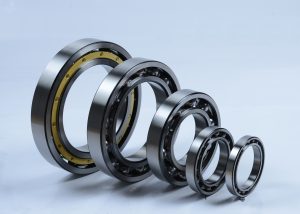During the rotation of the rolling bearing, there is friction resistance due to the mutual contact between its five major components: outer ring, inner ring, retainer, steel ball, and sealing ring.
The friction resistance of bearings affects the life of the bearing and is an important factor affecting the reliability and accuracy of the system. Especially for high-tech bearings, such as gyroscope bearings, satellite de-rotation antenna bearings, carrier rocket bearings, flight platform bearings, etc., more stringent friction torque measurements are required.
In short, the key requirements for the quality of precision bearings in various countries around the world have shifted from dimensional accuracy, geometric accuracy, and rotational accuracy of finished products to dynamic performance of bearings – measurement of friction torque and vibration, which are also two important technical performance indicators that are of utmost concern to users.
Therefore, the research purpose of bearing friction torque measurement technology is to study how to reasonably evaluate and accurately measure the friction performance of bearings, providing a reliable means for improving bearing design parameters, improving processing technology, and analyzing the influencing factors of bearing friction torque. This can improve the quality and accuracy of bearings, meet the technical requirements of users for bearing friction performance, and is of great significance for the development of cutting-edge science and technology and national defense construction.




